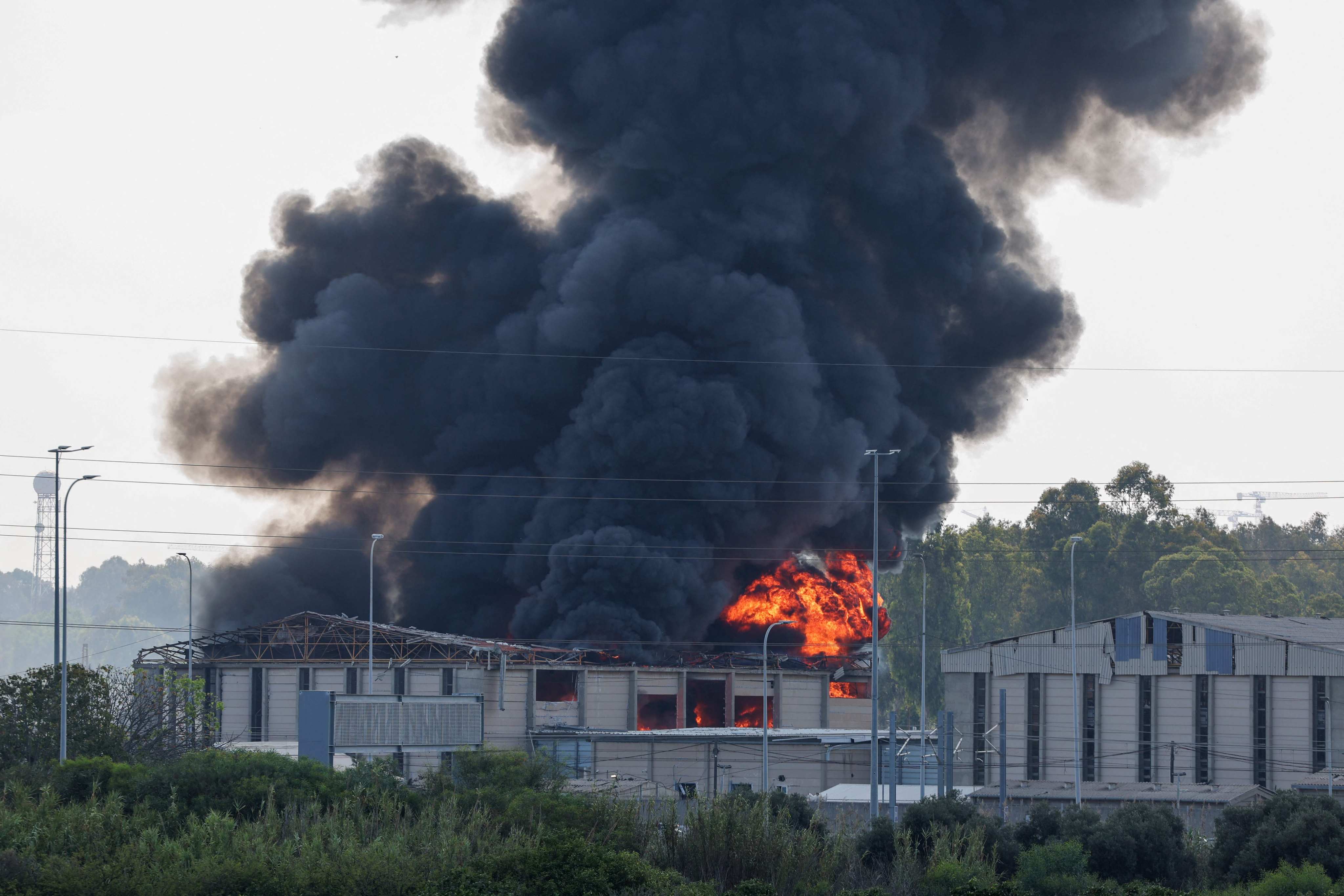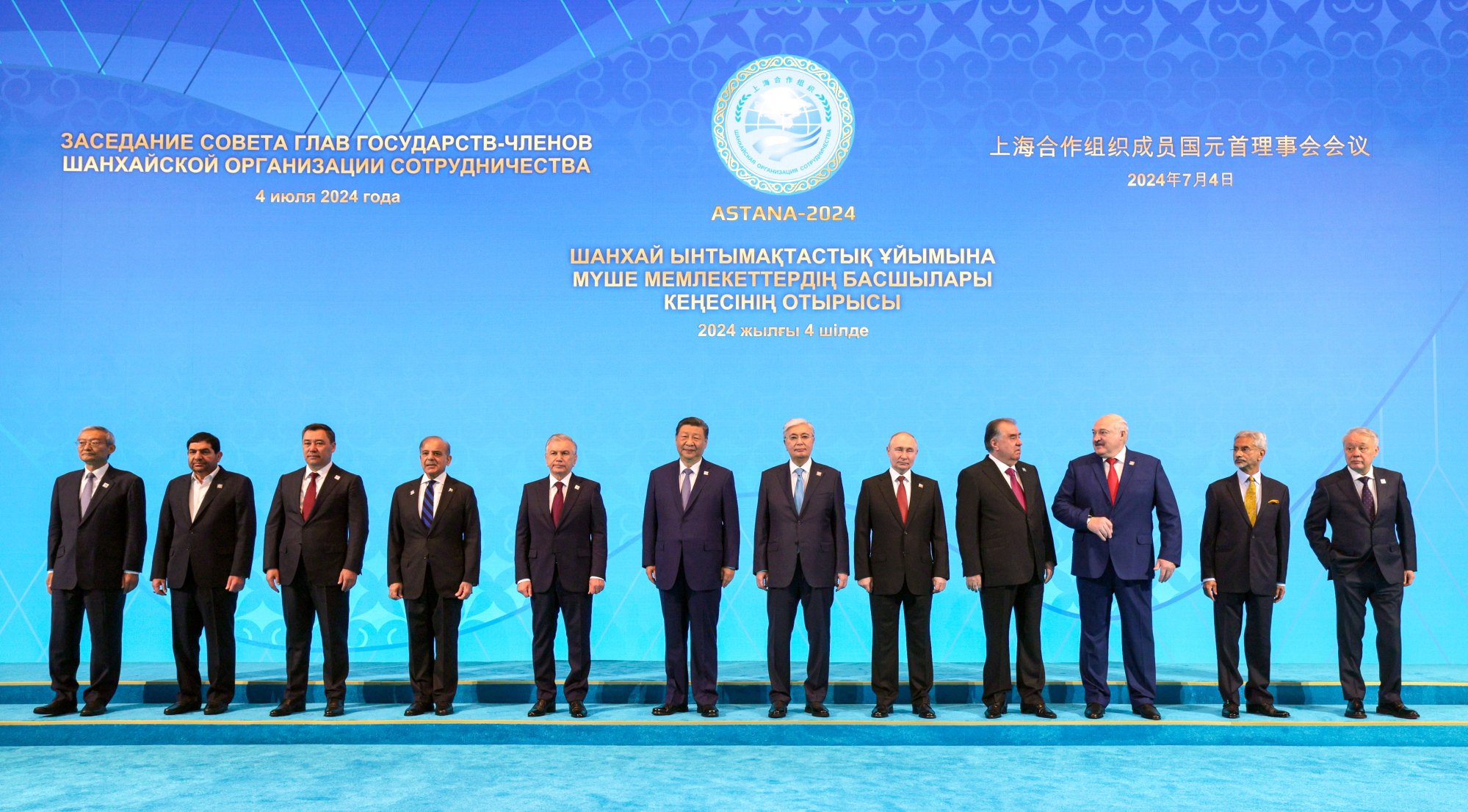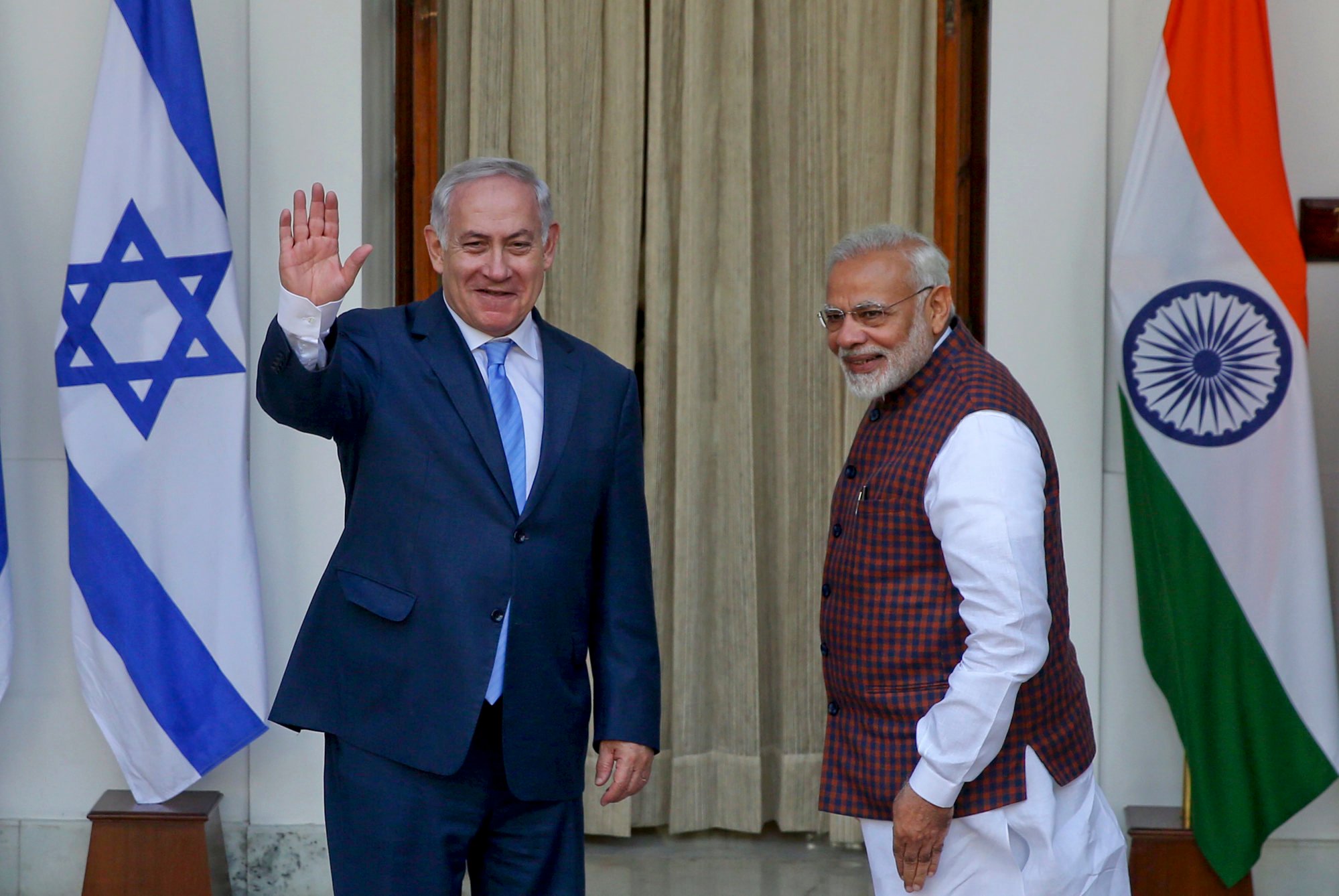What India’s break with SCO reveals about its stance on Israel-Iran conflict
India’s opt-out of SCO censure is driven by its need to safeguard strategic and economic interests with both Israel and Iran, analysts say

In a chorus of condemnation, India’s silence spoke volumes. New Delhi has distanced itself from a Shanghai Cooperation Organisation (SCO) statement denouncing Israel’s attacks on Iran, revealing the intricate web of interests tying it to both warring states.
The SCO – a 10-member bloc focused on economic and security interests, and currently chaired by China – issued a statement on Saturday censuring Israel’s military action. But India’s endorsement was conspicuously absent.
Other SCO members, including Kazakhstan, Kyrgyzstan, Russia, Pakistan, Tajikistan, Uzbekistan, Belarus and Iran, backed the communique that “strongly condemned” the Israeli strikes on Iranian territory, dubbed Operation Rising Lion. Delhi, by contrast, called separately for both Middle Eastern nations to resolve their differences through dialogue.
The escalating conflict, launched by Israel last week with the stated aim of curbing Tehran’s nuclear ambitions, has already exacted a heavy toll. Iran has reported more than 200 deaths, while Israel says 24 people have been killed and over 600 wounded so far.
India’s opt-out from the SCO’s censure reflects its assertion of strategic autonomy, as well as its reluctance to alienate either side, according to Shanthie D’Souza, senior research fellow at the University of Massachusetts-Amherst specialising in international relations.
“Unlike many SCO members, who lack a strong diplomatic relationship with Israel and can therefore issue strong statements … India has significant strategic interests in both Iran and Israel,” D’Souza said.
“Taking sides in this conflict could jeopardise these interests in the medium to long term, which is something India cannot afford.”
The SCO statement – endorsed by all members except India – condemned Israel’s “aggressive actions against civilian targets, including energy and transport infrastructure, which have resulted in civilian casualties, are a gross violation of international law and the United Nations Charter”.
The statement added that Israel’s actions “constitute an infringement on Iran’s sovereignty, cause damage to regional and international security, and pose serious risks to global peace and stability. The SCO member states firmly advocate for the resolution of the situation surrounding Iran’s nuclear programme exclusively through peaceful, political, and diplomatic means”.
D’Souza said India was somewhat of an outlier in the SCO, a bloc dominated by China and Russia, as Delhi sometimes pursued strategic interests at odds with the collective stance.
This divergence, she said, was recognised within the SCO, which was expected to accommodate a spectrum of perspectives.
“India’s membership benefits the organisation, and the reverse is also true. This mutual benefit allows the SCO to progress despite this minor setback,” she added.

Founded in Shanghai in 2001, the SCO initially comprised China, Russia, Kyrgyzstan, Kazakhstan, Tajikistan and Uzbekistan. Iran became one of its newest members in 2023, during India’s chairmanship.
Soon after the SCO’s condemnation of Israel, Delhi clarified that it “did not participate in the discussions on the statement”. In a separate foreign ministry statement on Friday, India urged both sides to use existing diplomatic channels and seek de-escalation.
“India enjoys close and friendly relations with both countries and stands ready to extend all possible support,” the ministry said.
Iran and Israel have long been at odds over the Palestinian issue, which has resurfaced amid the Gaza war, with Tehran supporting Palestinians in response to what it calls Israel’s “genocidal aggression”.
D’Souza described the Iran-Israel conflict as a mounting challenge to India’s foreign policy. Unlike the United States and some European countries, which maintain adversarial relations with Iran, India’s ties with Tehran are deep-rooted and have weathered many tests.
For India, she said, promoting diplomacy and negotiations was the surest path to an early resolution.
Kabir Taneja, deputy director of the strategic studies programme at the Delhi-based Observer Research Foundation, said India’s opt-out from the SCO statement reflected a broader balancing act between superpowers China and the US.
“The SCO is a heavily China-influenced consortium, and India’s position there is going to be that of an outlier. And this is an example,” he said.
Both Israel and Iran are strategically important to India: Israel as a technology-driven economy in the Middle East, and Iran for its civilisational ties, management of relations with Pakistan and Afghanistan, and access to Central Asia, according to Taneja.

‘Very delicate situation’
India is Israel’s largest defence customer, importing an estimated US$2.9 billion in military hardware over the past decade, including drones, radars, missiles and surveillance systems.
Despite being embroiled in the Gaza conflict since October 2023, Israel has reportedly continued its defence exports to India.
Meanwhile, India has been developing Iran’s Chabahar Port to secure access to Central Asia and Afghanistan. Before US sanctions in 2019, following Washington’s withdrawal from the Iran nuclear deal, Iran was India’s third-largest oil supplier, with imports worth US$12.1 billion.
Suresh Rangarajan, head of international relations at Kerala Central University, said India’s decision to sit out the SCO statement was understandable, as every nation ultimately prioritised its own interests.
“Every country gives more significance to bilateral relations. China, being a part of the SCO, supports Pakistan and many terrorist organisations – a stand that contradicts India’s position,” he said.
Rangarajan also pointed to India’s close bilateral relations with both warring nations.
India is in a very delicate situation. It needs Iran for its economic interests, but also requires Israel for security and defenceSuresh Rangarajan, international relations expert
“India is in a very delicate situation. It needs Iran for its economic interests, but also requires Israel for security and defence,” Rangarajan said.
“[With Iran] Chabahar is very important for India because it has an ambitious programme of getting a corridor to the European market. Israel, on the other hand, has always extended support to India in crises in terms of defence and security. So, for India’s defence strategy, Israel is a major component,” he added.
“India, like Arab countries and the United States, will also be accelerating the process of negotiation between the two countries. A prolonged war is of no interest to anyone.”
On Wednesday, Iran and Israel launched fresh missile strikes at each other as the conflict entered its sixth day despite a call from US President Donald Trump for Tehran’s unconditional surrender.
The Israeli military said two barrages of Iranian missiles were launched towards Israel in the early hours of Wednesday morning. Explosions were heard over Tel Aviv.
Israel told residents in a southwestern area of Tehran to evacuate so its air force could strike Iranian military installations. Iranian news websites said Israel was attacking a university linked to Iran’s Revolutionary Guards in the east of the capital.
Trump warned on social media on Tuesday that US patience was wearing thin. While he said there was no intention to kill Iran’s leader “for now”, his comments suggested a more aggressive stance towards Iran as he weighed whether to deepen US involvement.
“We know exactly where the so-called ‘Supreme Leader’ is hiding,” he wrote on social media, referring to Iran’s Ayatollah Ali Khamenei. “We are not going to take him out (kill!), at least not for now … Our patience is wearing thin.”
Three minutes later Trump posted, “UNCONDITIONAL SURRENDER!”
Additional reporting by Reuters